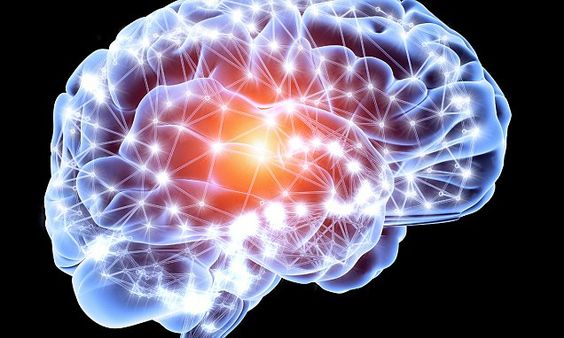Does Weed Kill Brain Cells
The idea that marijuana (weed) kills brain cells is a topic that has been widely debated and studied for many years. While early research suggested a link between marijuana use and potential damage to brain cells, more recent and comprehensive studies have provided a more nuanced understanding. Read about Is Brain Muscle
Here are some key points to consider:
- Limited Evidence of Cell Death: Early studies in the 1970s and 1980s suggested that the active compound in marijuana, delta-9-tetrahydrocannabinol (THC), might cause cell death in certain brain regions. However, these studies often used extremely high doses of THC that do not reflect typical human usage.
- Neuroplasticity: The brain has a remarkable ability to adapt and change through a process called neuroplasticity. Some research suggests that while marijuana may affect certain brain functions temporarily, the brain can often recover and compensate for these effects, especially in moderate or occasional users.
- Impact on Cognitive Function: Marijuana can have short-term effects on cognitive function, particularly in areas like memory, attention, and decision-making. These effects are generally reversible after discontinuing use. However, heavy and prolonged use, especially during adolescence when the brain is still developing, may have more lasting effects on cognitive function.
- Individual Differences: The impact of marijuana on the brain can vary from person to person. Factors such as the frequency and quantity of use, the age of initiation, and genetic predisposition can all influence how marijuana affects an individual’s brain.
- Recent Research: More recent research using advanced brain imaging techniques has provided a more detailed understanding of how marijuana affects brain structure and function. While some studies have found associations between marijuana use and changes in brain structure, the clinical significance of these changes and whether they are directly related to cell death remains a subject of ongoing investigation.
Also read the Article: Blood Clot in Brain Symptoms
In summary, while there is still ongoing research in this area, the consensus is that occasional and moderate marijuana use by adults is unlikely to cause significant, long-term damage to brain cells. However, heavy and prolonged use, particularly during adolescence, may have more pronounced and lasting effects on cognitive function and brain structure. It’s important to make informed choices about marijuana use and consider potential risks, especially for young individuals or those with a family history of mental health issues. Always consult with a healthcare professional if you have concerns about marijuana use and its potential impact on your health.
The Science Behind Weed and Brain Cells
The Impact of THC
One of the primary components of marijuana, tetrahydrocannabinol (THC), is often associated with its psychoactive effects. But does THC harm brain cells? Research suggests that THC does affect brain function, particularly in high doses or when used at a young age. However, it’s essential to distinguish between short-term impairment and permanent damage.
Neuroplasticity: The Brain’s Resilience
The human brain possesses an incredible ability to adapt and repair itself through a process called neuroplasticity. While THC may temporarily disrupt neural pathways, the brain can often compensate for these changes over time. This phenomenon challenges the notion that weed inevitably kills brain cells.
Long-Term Studies
Several long-term studies have examined the effects of chronic marijuana use on brain health. While some findings indicate subtle cognitive changes, they do not definitively conclude that weed kills brain cells. These studies underscore the complexity of the brain’s response to cannabis.
Does Weed Kill Brain Cells? Personal Experiences
Anecdotal Evidence
Many individuals who have used marijuana over extended periods report various experiences. Some claim memory lapses or cognitive difficulties, while others notice no significant changes. These diverse anecdotes make it challenging to draw a clear-cut conclusion.
The Importance of Responsible Use
Personal experiences often hinge on factors such as the frequency and dosage of marijuana consumption. Responsible use and moderation can play a crucial role in mitigating potential adverse effects on brain function.
Debunking Myths: Weed and Brain Cells
The Role of Misinformation
The perception that weed kills brain cells has, in part, been fueled by misinformation and sensationalism. It’s essential to critically evaluate the sources of information and consider the underlying motivations behind certain claims.
Expert Opinions
Leading experts in the field of cannabis research stress the need for more comprehensive studies. They caution against making sweeping generalizations about the effects of marijuana on brain cells and emphasize the importance of nuanced, evidence-based discussions.
The Brain’s Endocannabinoid System
To comprehend how marijuana affects the brain, it’s essential to understand the endocannabinoid system. This complex network of receptors and neurotransmitters plays a crucial role in regulating various physiological processes, including mood, appetite, and pain perception. Both cannabinoids in marijuana interact with this system, affecting brain function.
The Myth of Brain Cell Death
Contrary to popular belief, there is limited scientific evidence to support the idea that marijuana kills brain cells. While excessive alcohol consumption can lead to the death of brain cells, the same does not hold true for marijuana. However, this does not mean that marijuana is entirely benign regarding brain health.
Short-Term Effects on Cognitive Function
In the short term, marijuana can impair cognitive function. This impairment is temporary and typically subsides when the effects of the drug wear off. Common short-term effects include memory difficulties, decreased attention span, and impaired motor skills. These effects are more pronounced with high doses of THC.
Long-Term Effects and Cognitive Decline
Long-term, heavy marijuana use may have more substantial consequences for cognitive function. Some studies suggest that chronic use, especially when initiated during adolescence, may lead to persistent cognitive deficits. However, the extent and reversibility of these effects remain topics of debate among researchers.
Individual Variations
It’s crucial to note that individual responses to marijuana vary significantly. Some people may experience more pronounced cognitive effects, while others may remain largely unaffected. Factors such as genetics, frequency of use, and the presence of other substances can influence these variations.
Youth and Vulnerability
Adolescents and young adults are particularly vulnerable to the potential cognitive effects of marijuana. The developing brain may be more sensitive to the influence of THC, making responsible use essential for this demographic.
Medical Marijuana and Neuroprotection
Interestingly, some research suggests that certain compounds in marijuana, like CBD, may have neuroprotective properties. They could potentially be used in the treatment of conditions like epilepsy and neurodegenerative diseases. However, further research is needed in this area.
Responsible Use Guidelines
If you choose to use marijuana, responsible consumption is key to minimizing potential cognitive risks. Avoid excessive and frequent use, especially during adolescence. Be mindful of individual tolerance levels and consider the potential impact on your cognitive abilities.
Conclusion
So, does weed kill brain cells? The answer is more nuanced than a simple yes or no. While marijuana doesn’t directly kill brain cells, it can have short-term and potentially long-term effects on cognitive function, especially with heavy and frequent use. Understanding the risks and using marijuana responsibly is essential for maintaining optimal brain health.
FAQs
Q. Is it safe to use marijuana if I’m concerned about my brain health?
A. It’s advisable to exercise caution, especially if you have concerns about cognitive function. Responsible and moderate use is key.
Q. Can marijuana be used as a treatment for brain-related conditions?
A. Some components of marijuana, like CBD, show promise in treating certain brain-related conditions, but more research is needed.
Q. Is marijuana more harmful to the adolescent brain?
A. Research suggests that the adolescent brain may be more vulnerable to the effects of marijuana, so it’s best to avoid or limit use during this period.
Q. Are there any proven methods to mitigate the cognitive effects of marijuana?
A. Abstaining from marijuana use is the most effective way to avoid cognitive effects. If you choose to use, doing so responsibly and in moderation can help.
Q. Where can I find more information about responsible marijuana use?
A. You can find resources and guidelines from reputable health organizations and government websites. Additionally, consult with healthcare professionals for personalized advice.

